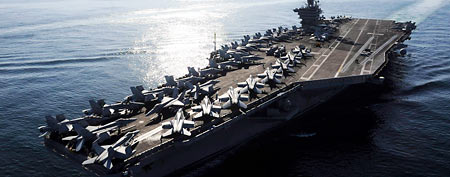Vita anazoanzisha US huanza na vikwanzo kwa nchi lengwa. Kwa hiyo, kimantiki ,mtu anaweza kusema US anajitayarisha kwa vita nyengine.Watu wanapenda vita eh? Kusaini a "sanctions bill" kusaini vita?
Vikwazo huwa na lengo la kuipunguza nguvu, kuidhoofisha nchi inayowekewa vikwazo.







